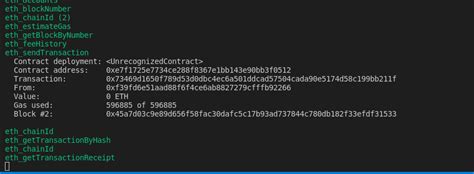Ethereum: Ethers.js – Checking Operations Methods in EMIT events

Introduction
In this article, we will examine the importance of checking that the operation of the operation in an intellectual contract is disseminating the incident. First of all, we will focus on the Ghetowneraddress feature, which spreads the “self -re -reciprocal” event.
Function Ghetowneraddress feature
The Ghetowneraddress feature is called when the owner’s address changes in the contract:
`Solidarity
Function Ghetowneraddress () Public Video (Address) {
EMIT Ownerreruned (“owner”);
}
`
In this example, we spread a “self -evident” event with a specific report (“owner”). This means that every time it is called the “ghetneraddress” feature, it will send this event to all blockchain contracts and knots.
an event exhaust check
We can use Ethers.js to check that the Ghetowneraddress features the right events. Here is the updated version of the contract with several additional checks:
`Solidarity
Pragma solidity ^0.8.0;
Import “
Import “
Contract with MyContract {
address private owner;
Uint256 Public Balance = 0;
Event Ownerreruted (String Memory MSG);
Function Ghetowneraddress () Public Video (Address) {
Require (MSG.SEnder == owner, “only the contract owner can call this function”);
EMIT Ownerreruned (“owner”);
return address (0); // Return NUL to indicate that the new owner has not been identified
}
Functional plant (address _newowower) public {
Require (_newowner! = owner and &! balance, “cannot replace the owner or move tokens”);
Owner = _newowner;
EMIT Ownerreruned (“owner”);
balance = 0;
}
}
`
Explanation
In this updated contract:
###’S conclusion
To check that the method of operations is spreading events is very important in order to ensure the security and integrity of the contract. With Ethers.js, you can catch any potential problems before you start making contracts. This example shows how to write stronger intellectual contracts, correctly checking out events and managing Edge cases.

